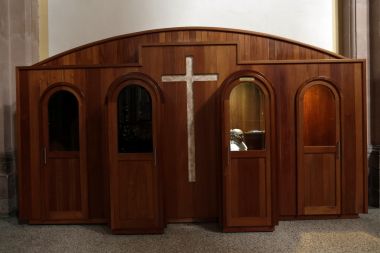Mexico: 11th priest found dead in three years

The partially burned body of a priest has been found in Mexico, making him the 11th clergyman to have been killed in the country since 2013.
Father Erasmo, who was reported missing last week, was found dead on an isolated country road on Monday, the Telegraph reports. He was a priest in the town of Cuyuaco, Puebla, in south-eastern Mexico.
According to the Puebla state prosecutor, burn marks were found on the priest's body, and he had sustained head injuries.
Religious discrimination is a pervasive problem in many parts of Mexico, where over 80 per cent of the population is Catholic. Christian Solidarity Worldwide (CSW) earlier this year accused the government of failing to uphold constitutional freedoms and to hold perpetrators of violence against religious groups to account.
More Catholic priests and leaders were killed in Mexico last year than any other country in the world, and CSW said criminal violence is having a "chilling effect on religious freedom".
There has been a significant rise in the number of criminal groups in many parts of Mexico, and a number of Catholic priests have spoken out against them. According to CSW, these groups kidnap and kill clergymen because they "consider churches an attractive target for extortion and as fronts for money laundering, and believe that church leaders pose a threat to their influence and aims."
The cause of Father Erasmo's death is not yet known.
The Catholic Multimedia Centre (CCM), which has been documenting attacks on priests in Mexico since 2010, said they believe that priests and other church leaders are targeted with the specific intention of intimidating the Catholic Church on a local and national level. As of earlier this year, CCM said that 520 priests were currently being extorted or had received death threats from criminal gangs.
In addition to the murder and extortion of priests, many minority groups face religious discrimination in Mexico. Some states are governed under the Law of Uses of Customs, which gives significant autonomy to indigenous communities. Though the constitution guarantees freedom of religion or belief, it is not uncommon for local leaders to force members of their communities to follow certain religious practices and the rights of minority groups are routinely violated.
Some minorities are deprived of basic services such as water and electricity, are refused the right to vote and minority children are barred from attending school.











